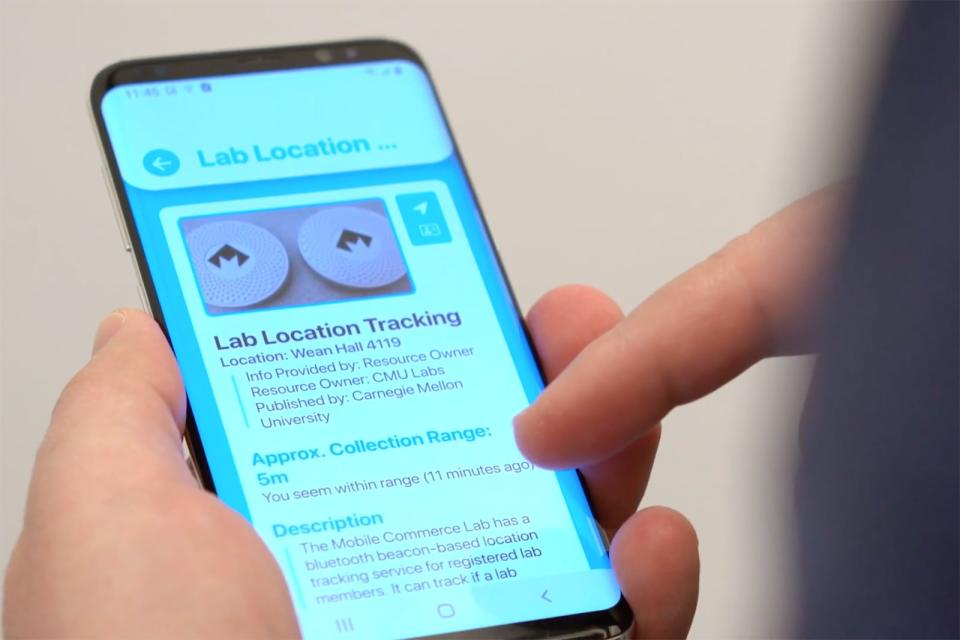Engadget has been testing and reviewing consumer tech since 2004. Our stories may include affiliate links; if you buy something through a link, we may earn a commission. Read more about how we evaluate products.
Carnegie Mellon built an 'opt-out' system for nearby tracking devices
That is, if companies get onboard with the university's idea.
It's getting easier to control what your smart home devices share, but what about the connected devices beyond your home? Researchers at Carnegie Mellon's CyLab think they can give you more control. They've developed an infrastructure and matching mobile app (for Android and iOS) that not only informs you about the data nearby Internet of Things devices are collecting, but lets you opt in or out. If you're not comfortable that a device in the hallway is tracking your presence, you can tell it to forget you.
The framework is cloud-based and lets stores, schools and other facilities contribute their data to registries.
The limitations of the system are quite clear. It's based on voluntary submissions, so it's most likely to be used by those eager to promote privacy -- if it's not in the registry, you won't know about it. A business determined to track its workers may be reluctant to let staff know they're being monitored, let alone give them a chance to opt out. This also assumes that there are enough people concerned about privacy to download an app and check if the sensor over their head is a privacy risk. The Carnegie team is betting that companies and institutions will use the infrastucture to ensure they're obeying rules like the California Consumer Privacy Act and Europe's General Data Protection Regulation, but there's no guarantee they'll feel pressure to adopt this technology.



